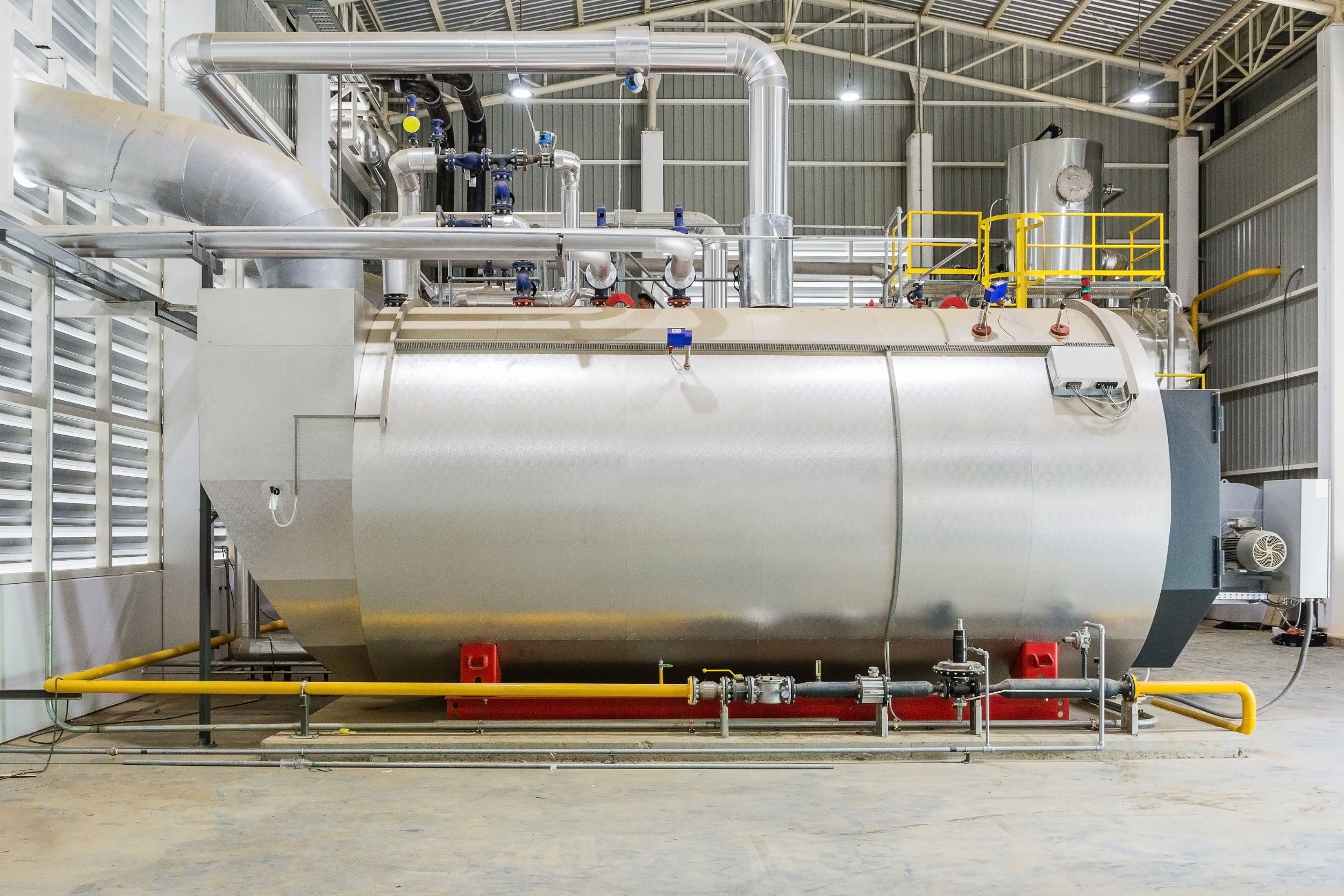Boiler Treatment
Water treatment for Boilers
We manufacture an extensive range of steam boiler water treatment chemicals for the prevention of corrosion and scale formation.
Our product range of boiler chemicals includes oxygen scavengers, polymers, phosphates, alkalinity builders and condensate line protection to ensure your steam boiler works perfectly. From chemicals to boiler feedwater test kits, our aim is to provide an all-encompassing service.
To discuss your requirements and take advantage of our expert advice contact us on 01495 792790.
Our Boiler Product Guide
ALKALINITY BUILDERS
pH control is integral when looking after a boiler. Alkalinity builders are used to raise the pH of the system to a more alkali state (Ideally, between 10.5pH and 12pH). A stabilised alkali pH can contribute to scale and corrosion prevention by allowing a protective magnetite film to be maintained, ultimately protecting your boiler and its components.
Sludge Conditioners
Sludge is an accumulation of water precipitates including calcium carbonate, calcium phosphate, iron oxides, silicates, and other debris that enter the system, and settle at the bottom of a boiler, reducing the heat transfer efficiency and lifespan of the system. Sludge conditioners are used to disperse and suspend the precipitated solids in the water rather than letting them settle in the boiler. This will allow the unwanted solids to be discharged from the bottom blowdown during standard operation.
Condensate Line Treatments
The condensate return line in a boiler is susceptible to carbonic acid attacks due to a decline in the condensate pH, compromising the integrity of the system. As the steam condenses back into water, it forms an acidic condensate due to the dissolved gases that have entered the system, such as carbon dioxide (CO2) and oxygen (O2). It is important to use condensate line treatments (usually consisting of amines) in a boiler to neutralise the acidic condensate or form a non-wettable barrier and prevent scale and corrosion.
OXYGEN SCAVENGERS
Dissolved oxygen (DO) can be detrimental to the structural integrity of a boiler system. Oxygen commonly enters the system via the boiler feedwater; however, it can also leak into the system through improperly sealed valves and other components. To remove DO, oxygen scavengers are used, preventing corrosion via metal oxidation processes (rust), and maintaining water quality. These are divided into non-volatile and volatile groups. Non-volatiles will include catalysed sodium sulphite and tannins, whilst volatiles refer to diethyl hydroxylamine (DEHA) and carbohydrazide
SULPHITE OXYGEN SCAVENGERS
Sulphite is arguably the most popular oxygen scavenger due to its consistency, cost-effectiveness, compatibility, and ease of use. Sulphite-based oxygen scavengers react with the DO in the feedwater to form harmless compounds, such as sulphates (SO42-) and water (H2O). It is the most used scavenger at pressures below 60 bar.
TANNIN OXYGEN SCAVENGERS (FOR FEEDWATER TEMP. <80 °C)
Tannins are another great option for oxygen removal in a boiler system. Tannin-based oxygen scavengers are derived from natural tannins found in plants and trees. They form a protective barrier on the metal surfaces within the system, protecting the metals from DO. Although less frequently used, tannins are suitable for boilers where feedwater temperatures can fluctuate, or are consistently less than 50°C.
DEHA AND CARBOHYDRAZIDE OXYGEN SCAVENGERS
Diethyl hydroxylamine (DEHA) and Carbohydrazide are stable and remain effective at high temperatures where they can react with oxygen (O2) and ferrous metals to produce a protective magnetite. Although they are versatile oxygen scavengers, they tend to be used in high-pressure boilers.
Technical Help
Our expert scientists are here to help with your water treatment needs. Here are a few of our most frequently asked questions. If you can’t find the answer you are looking for get in touch by clicking here
-
Magnetite is a stable oxide of iron and is most stable between pH 8.5 and pH 11.0, hence the need to increase alkalinity in the boiler to achieve these values.
-
Approximately, 8ppm of sulphite (WTP S10) will remove 1ppm of dissolved oxygen (DO).
Boilers have a primary function of generating steam or hot water to provide heat or power to industrial processes, buildings, and facilities. They are vital pieces of equipment in many sectors of the economy, so it is imperative that boilers are managed and operated safely, efficiently, and reliably. Water treatment plays a crucial role in the functioning of a boiler by preventing scale and corrosion, as well as addressing steam impurities and microbial contamination.
To discuss your requirements and take advantage of our expert advice contact us on 01495 792790.


